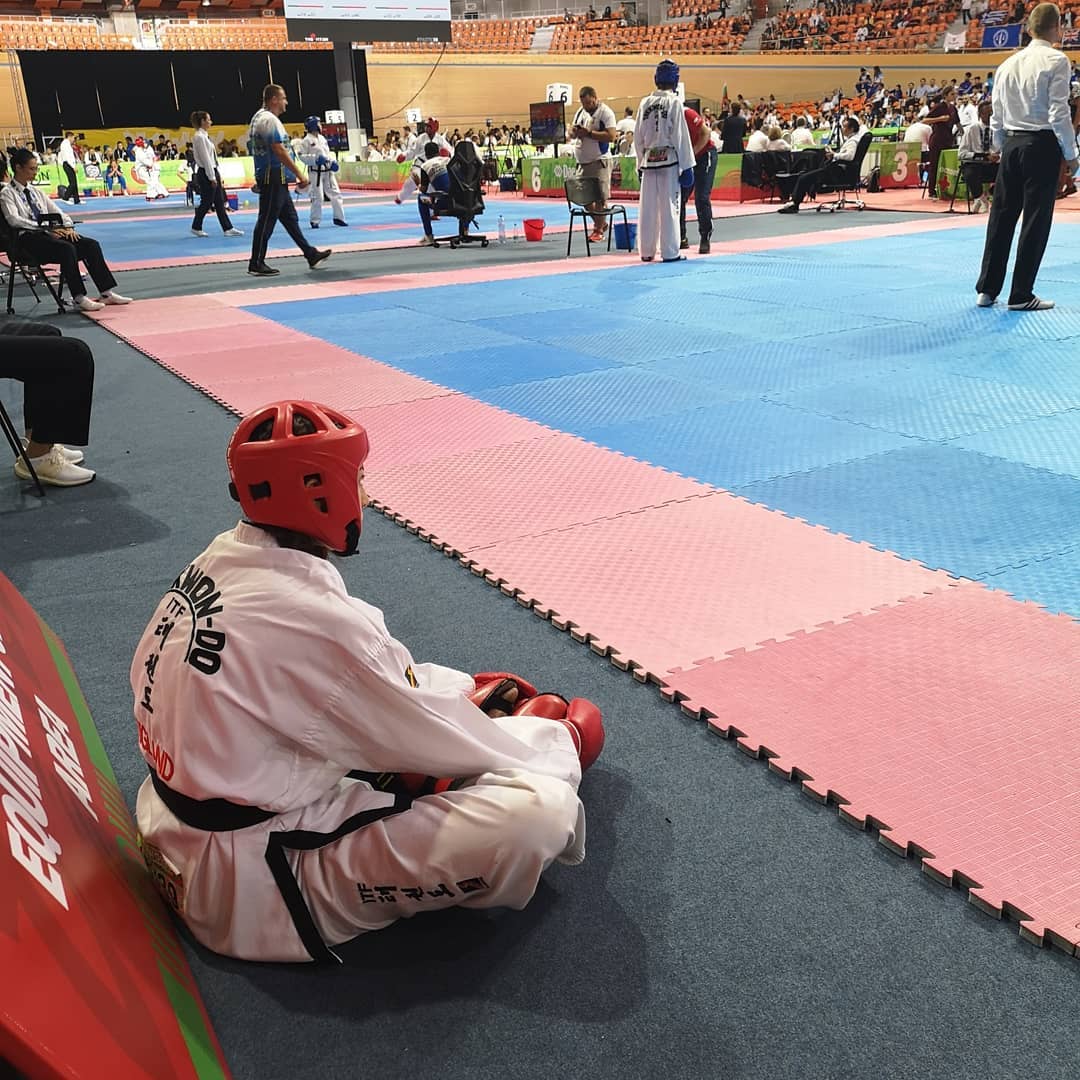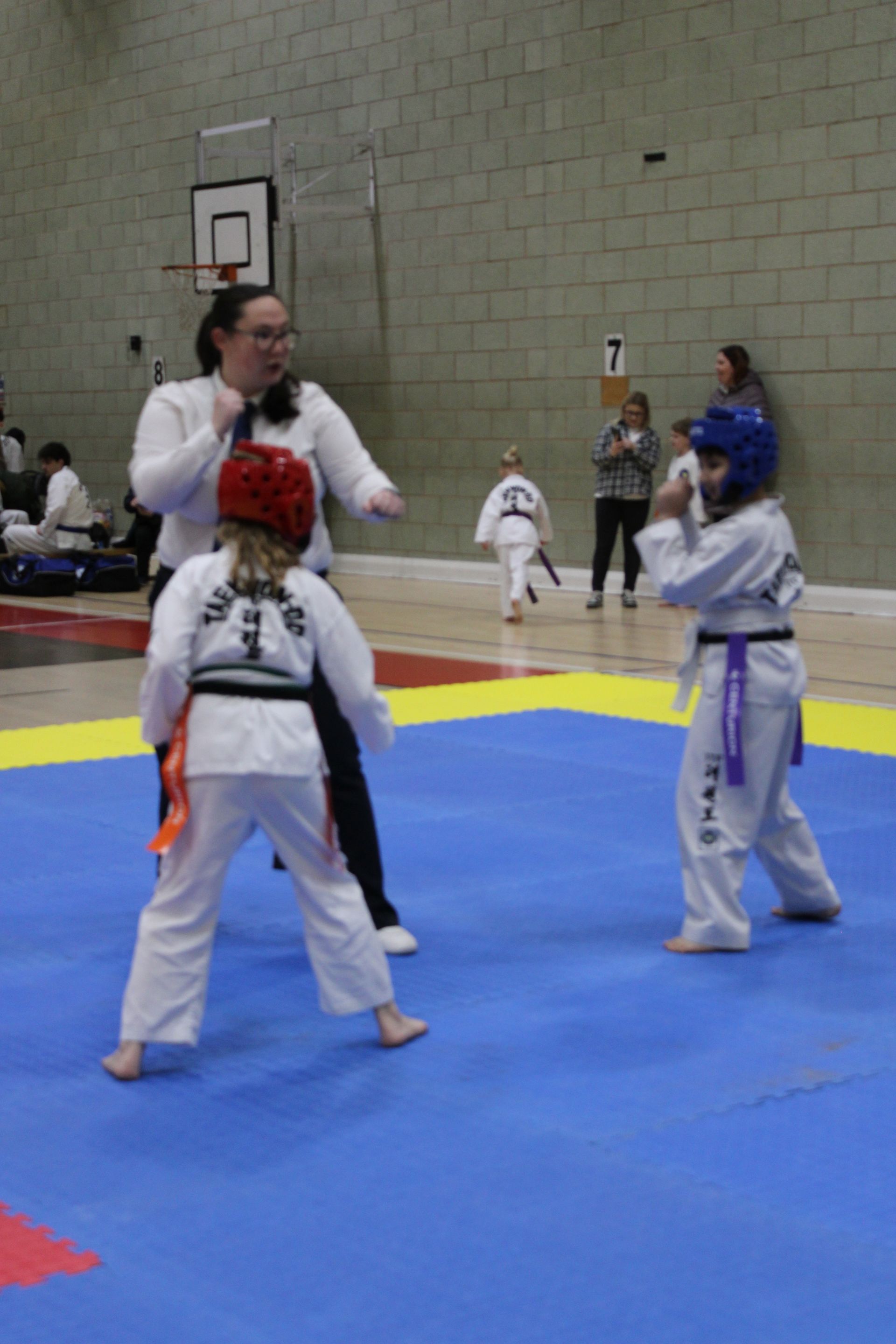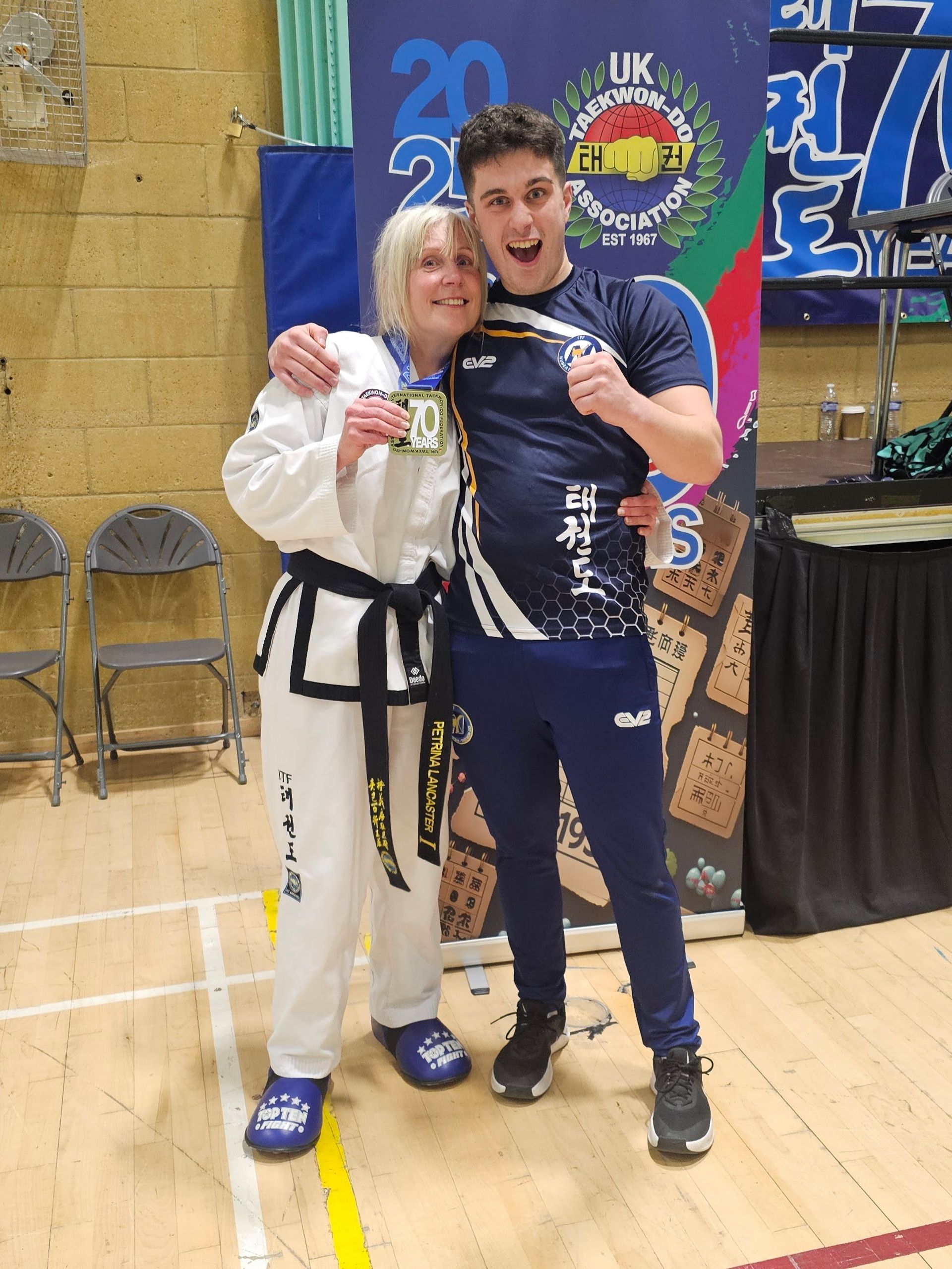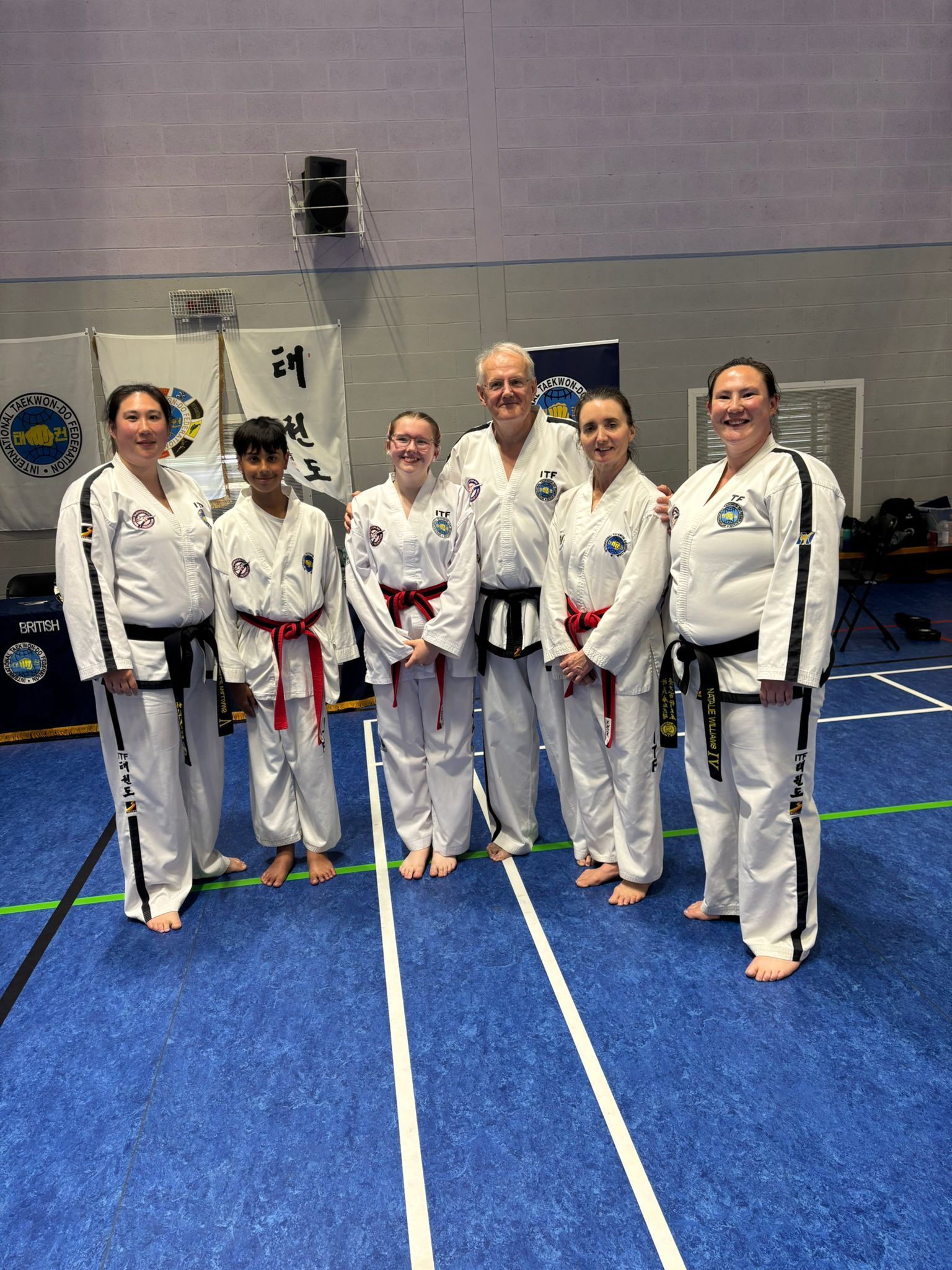How do you control your nerves before a grading or competition?
Natalie Williams • February 23, 2020
Learn how to control your nerves before they control you
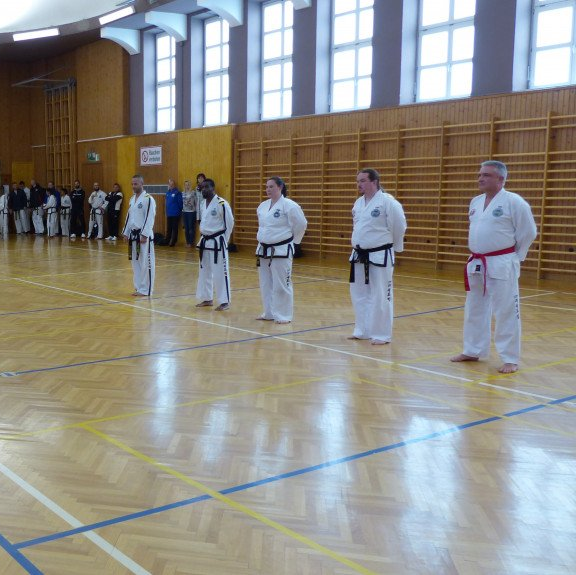
How does adrenaline affect us?
This is it. You are standing at the edge of the mat or grading area. Your heart’s pounding in your ears. You’re sweating, breathing hard, struggling to stand still. You look up and your eyes focus, taking in all the tiny details in front of you; the dips and joints in the mats, the expressions on the umpires or examiners faces, the bottles of water on the table which suddenly, you could really use as your mouth has become desert dry.
That flood of adrenaline is a familiar feeling to many of us: our fight or flight response.
In evolutionary terms, the fight or flight stress response was used when faced with the possibility of real physical harm. As the name suggests, it maximises our ability to either confront the danger head on
and defend ourselves or run from the fight to live another day. Whilst this was of great use when faced with a hungry tiger, today the most dangerous situations many of us face is crossing a busy road.
This fight or flight response is ultimately a stress response that manifests itself whenever we feel anxious or under pressure
and can be more debilitating than helpful when we need to perform. The stress we feel when we’re about to step onto the mat at competition or in front of the grading panel at a belt test is universal to us all. Anyone who claims not to feel nervous in these situations is either not being honest with themselves or does not care about the result. However we all experience this stress response to different extents. Sometimes we allow this stress to get the better of us and this can lead to problems with performing as we struggle to think tactically or concentrate on the techniques we are performing. Ultimately, this can lead to losses in competition
or sub-par performance at gradings. If we can learn to control this response we should be able to perform with a clear mind and therefore produce our best.
Some level of the stress response is needed when performing; the release of adrenaline
and the increased flow of blood and oxygen
to muscles can help us move faster, kick harder and jump higher. However if we cannot control this flow of adrenaline we can experience an “adrenaline dump”.
Adrenaline is not supposed to be released for long periods of time; seconds at the most, but unfortunately most sparring bouts and most gradings continue for minutes. The release of adrenaline and its effects require a tremendous amount of energy and, as a consequence, the dump can leave us feeling drained and sluggish. This is bad enough if it occurs part way through a spar but can be catastrophic if the stress response causes an adrenaline dump before we even get on to the mat. By learning to control the stress response we can ensure that when we step out onto the mat we are ready and able to put all of our training to good use.
How can you combat an adrenaline dump?
Knowing what we have to do and actually being able to control the stress response are worlds apart. However there are techniques we can use to manage our responses.
The first stage is to recognise when the stress response begins. This requires experience. In the moments leading up to a bout or an exam, take a moment to take stock of yourself and feel when that fight or flight sensation begins. By understanding the processes your body goes through, you can begin to understand when and how you should respond. For most people, the more they experience the adrenaline dump and their stress response, the easier it becomes to recognise the warning signs. It’s the same as when learning a new technique, it feels uncomfortable and often difficult, but the more you have to do it the more easily and natural it becomes.
Once you’ve identified when the stress response begins and which signs are more prominent, it’s time to start neutralising them.
As stated previously, some people find that repeated exposure to these stresses causes them to diminish over time. However for others, the stress response never decreases and can sometimes put people off competition for life or even from continuing their Taekwon-Do journey. For these people, learning how to control their emotions
can be critical in their performance. Many athletes choose to incorporate a relaxing routine
before they have to perform as going through a routine, whether a series of exercises, stretches or rituals can help put the mind at ease and relax before the big moment. Finding your own routine to help relieve the stress response is really important and may take a few attempts to get right.
Develop a routine
There's no correct way to prepare for a grading or competition, everyone will have their own methods. However these are some of the things you can incorporate into your routine:
- Listen to music - choose your favourite music, put your headphones on and shut off the world. Music can have a huge impact on how we feel so choose something you know is going to put you in a good mood and fire you up.
- Practice your favourite drill - remind yourself that you've trained hard for this and you are good enough to succeed. Run through drills you have learnt in training to remind your body how you are going to move.
- Visualise yourself succeeding - visualising the end goal will make you more likely to achieve it as you open up your mind to the possibility of success.
- Talk to someone you trust - talk to a coach or trusted training partner. They know you and know how well you can perform, they'll be able to remind you exactly why you can achieve.
- Remember to breathe! - when we're nervous our breathing may speed up or we may hold our breathe instead, focus on slow and steady breaths to bring your heart rate under control
The most important point to remember is that we all feel nervous, it’s what we allow the nerves do to us that is important.
Before going on the mat I, personally, always find a quiet corner, put on some high energy music and run through some drills. This reminds me exactly of my abilities and allows me to focus on directing my nervous energy into something worthwhile. Removing myself from others helps prevent my nerves from feeding off the energy of others. Although family, friends and teammates often have the best intentions I find conversation before I compete only heightens my anxieties. This is my method.
Nuneaton Taekwon-Do Instructor Natalie Williams IV
Ready to succeed?
Nerves do not have to rule you. Next time you come to take part in a grading, competition or difficult task, stop, reset and take control and you will succeed.




